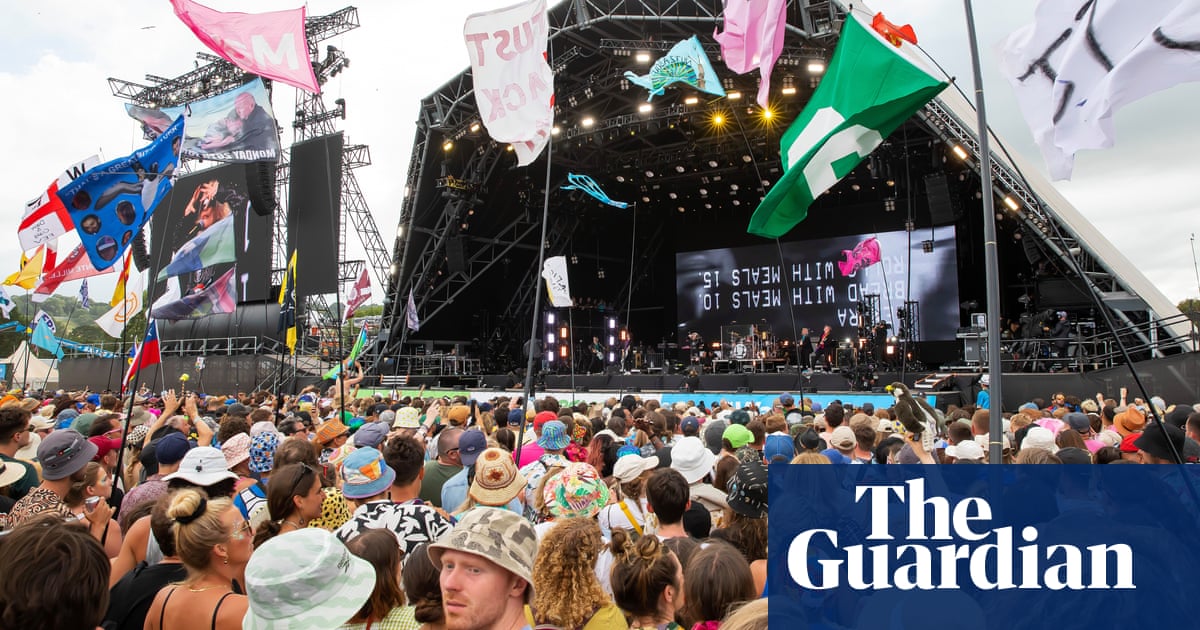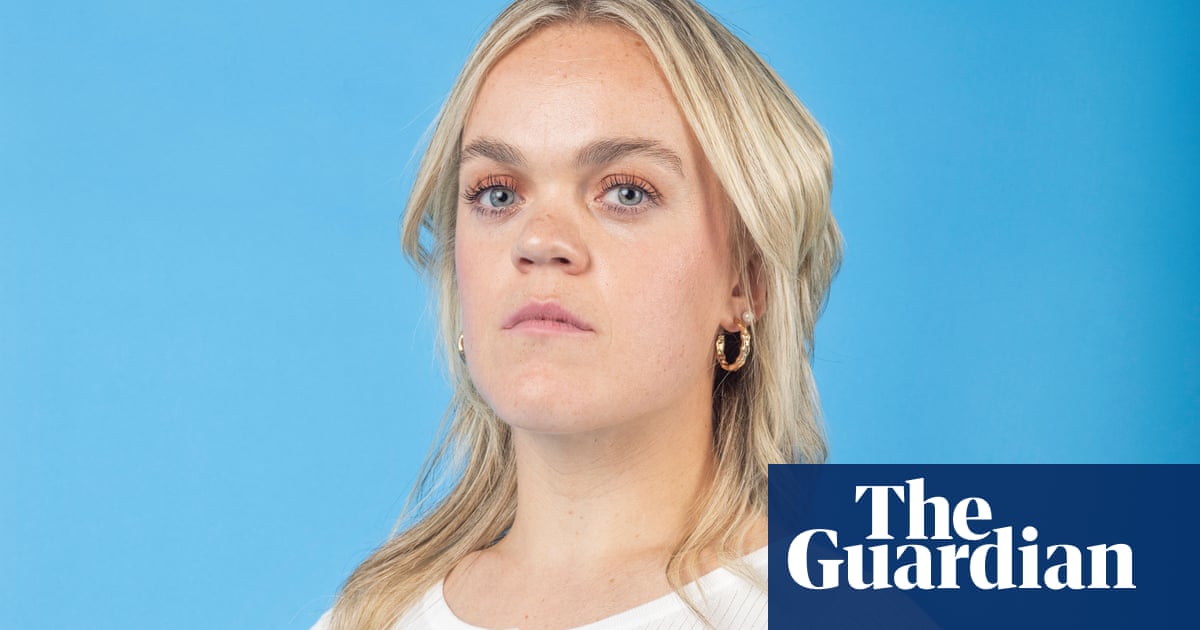
ormally in late April, the family home where Haggis McLeod raised his daughter Jess would be chaotic. There would be paperwork up to the ceilings – laborious pages of admin that comes with the role of programming circus shows for the largest music and performing arts festival in the world: Glastonbury.
But Covid-19, of course, means no Glastonbury this year. So McLeod – a world-class juggler who has led the festival’s theatre and circus fields since 2008 – has pivoted to something else instead: a campaign to keep afloat the Children’s World charity instigated by his late wife, Arabella Churchill, granddaughter of Winston.
“Bella would be using her time really well,” says McLeod down the line from his home in Glastonbury. It’s raining but he is sipping wine and looking out at the garden he shared with Arabella for 20 years. “I’ve taken over the admin, but it’s taken me three weeks just to get my head around not having a festival. It’s only been these last couple of weeks that I’ve been going, ‘OK I’ve got to get my head down …’”
Churchill was only in her 50s and still working on site when she received the news in 2007 that she had pancreatic cancer. By December of that year she had died. It was a shock to everyone. Churchill had played a key role in making Glastonbury the renowned event it is today. Deeply loved by Michael Eavis, she co-founded the festival in 1971 with Andrew Kerr, an employee of Bella’s father, Randolph Churchill, Winston’s son.
Randolph called Kerr “intolerably hip” (a phrase Kerr took for the title of his autobiography). Meanwhile Bella, who was once named debutante of the year and a suitor for Prince Charles, felt out of place in her family circles, saying she was “no good at being a Churchill”. She retreated from public life and began beavering away expanding Glastonbury festival, enthralled by Somerset’s community and creative potential. She helped set up the festival’s children’s field in 1979 and, later, the theatre and circus fields too.
With the support of Eavis, the festival swelled in scope and Churchill met McLeod there in 1987 when he showed up to perform as a juggler. They quickly became an item. “She followed me around the country,” recalls McLeod. “Every time I was in a city she’d turn up in a car and say, ‘I’m here to see you.’” Churchill soon became pregnant and, for a time, McLeod and Churchill were the prey of the tabloids. “I knew she was [Winston] Churchill’s granddaughter but I didn’t realise her becoming pregnant would be such an issue,” McLeod admits.
In McLeod, Arabella Churchill fell for someone resoundingly different to her social set (as a child she holidayed with the Kennedys) as well as more adventurous and free-thinking. For two years the duo eschewed ordinary life to travel the world. “We spent a lot of time underwater together,” remembers Haggis of their scuba diving trips. “We didn’t mind adventure. We didn’t mind hardship. Bella could sleep on the floor and be quite happy.”
As they went, the duo hit upon a strategy to wriggle themselves free from tight situations. “We used to have this thing where we’d ‘pull a Churchill,’” admits McLeod. When the newlyweds were saved from a hazardous sailing trip in Hawaii by a nearby container ship, Bella found herself wanting a cigarette. “So I said to one of the guys, ‘I just want you to know that you’ve saved the life of Winston Churchill’s granddaughter.’ About 10 minutes later the captain came down and said ‘Anything I can do for you ma’am?’ He took us out to a door on the side of this huge ship. Somebody magicked up a cigarette for her, and several seaman came just to say hello and shake her hand. Americans love Churchill.”
Other times, pulling a Churchill made light work of boarding a late flight, although Haggis says “she wouldn’t do it a lot”: mostly Bella would save her privileges for when she could do some good.
On several occasions Churchill flew to Albania and Kosovo to do aid shows after the Kosovan war. “There are stories of her camped out at the port trying to get stuff that was trapped in customs,” says Haggis. “She would just pursue it and pursue it and pursue it. It did help if the people there had some idea who Churchill might have been.”
“It was the same ethos with her charity work as it was with the festival: making people happy,” says daughter Jess Churchill-McLeod, now 32. “People don’t necessarily go to Glastonbury for the arts, and yet when they’re there, they can experience blow-your-socks-off circus, mesmerising poetry, world-class theatrical shows. She loved that. She loved sitting and looking at the audience’s faces as the shows were happening, and just being happy that everybody was happy. That was her thing, that’s what ties the two together.”
These days, Jess strongly reminds McLeod of Bella. “Sometimes you’re standing there and something comes out of her mouth and you just think, ‘That’s your mother speaking.’ She’ll say, ‘We can’t do that, we’ve got to do this, Dad.’ And I’ll just run with it.”
While McLeod now has Bella’s job overseeing theatre and circus production, Jess manages relations, and puts out fires, with the crew and 350 acts. “We’ve got a backstage of 4,000 people,” says McLeod, “everything you can think of happens: births, deaths, marriages.” A photo of Bella still stands in the production office.
“Michael always trusted Bella’s integrity, her instinct, her work ethic,” says McLeod. “When she died he used to say, ‘Bella used to work all these hours’ – and it’s true, she did. I think he had a great deal of respect for her, and she for him.”
As a young girl, Jess didn’t comprehend the scale of the festival. It was only after hearing her mother do interviews that she realised how much people really cared about Glastonbury. “One time [the press] asked to have a chat with me and they asked, ‘Would you ever take over from your mother?’ My answer was so quick. ‘Hell no! She works so hard, I could not do that.’
“I so wish she’d known that I’d eventually got involved with the festival and the charity, now that I’m a trustee,” says Jess. “And I so wish she was here to see my children. When she died, she left a huge void that no one person could fill and we all continued for several years as though she was still here. It took us quite a few years to change things.”
Through the charity and those beloved festival fields, Bella Churchill’s legacy lives on. “Eleanor and Kasper know that their great-great-grandfather’s face is on money,” laughs Jess. “I don’t think they know what that means yet, they’re not at the point they’re telling their friends. They’re neither proud of it nor ashamed of it, it’s just reality. As they grow up, they’ll realise what it means.”
Devoted Glastonbury attendees may feel the hair raising on their arms the next time they stroll through Bella’s Field, or across Bella’s Bridge, on the festival site. “It is an honour,” says Jess. “To work in a field that’s named after your mother is tremendously special.”
“The bridge itself doesn’t make me think of Bella, necessarily,” says McLeod. “I mean it it’s got the plaque, but for me, it’s if I’m with somebody who knew Bella and we watch something together. Whether it’s good or bad, we’ll look at each other and go, ‘What would Bella think of that? What would Bella do?’”
“I know how lucky I am for other adults to be able to say to me, ‘I owe your mother a lot,’” says Jess. “She was a facilitator: she’d give people opportunities. Most of the managers that are there are there because she put them there. She was not just their boss, she was their friend. And it’s joyous to still be able to talk about someone who’s died. She’s for ever present in our lives.”












